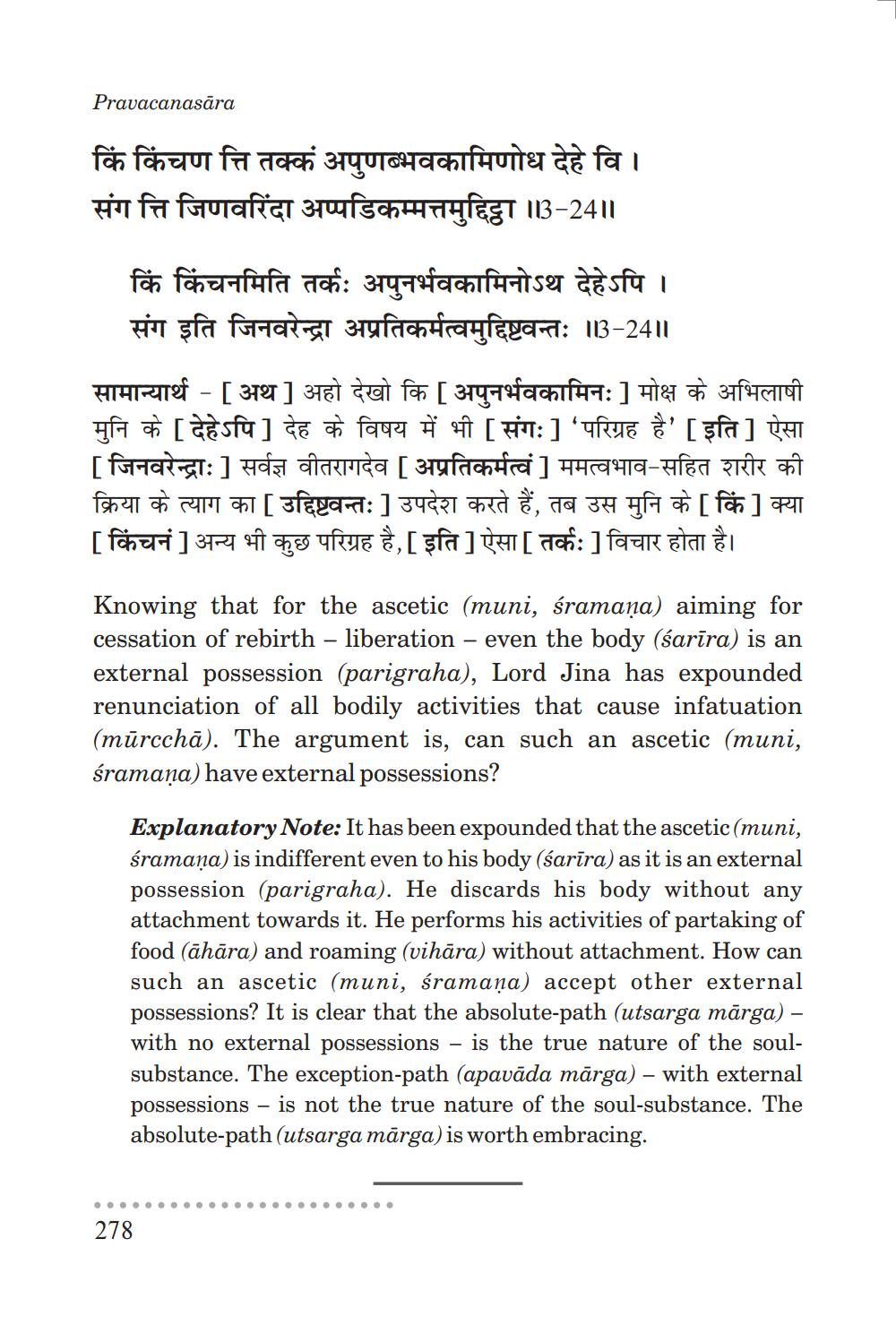________________
Pravacanasāra
किं किंचण त्ति तक्कं अपुणब्भवकामिणोध देहे वि। संग त्ति जिणवरिंदा अप्पडिकम्मत्तमुट्ठिा ॥3-24॥
किं किंचनमिति तर्कः अपुनर्भवकामिनोऽथ देहेऽपि । संग इति जिनवरेन्द्रा अप्रतिकर्मत्वमुद्दिष्टवन्तः ॥3-24॥
सामान्यार्थ - [अथ ] अहो देखो कि [ अपुनर्भवकामिनः ] मोक्ष के अभिलाषी मुनि के [ देहेऽपि] देह के विषय में भी [ संगः] 'परिग्रह है' [इति ] ऐसा [जिनवरेन्द्राः] सर्वज्ञ वीतरागदेव [अप्रतिकर्मत्वं] ममत्वभाव-सहित शरीर की क्रिया के त्याग का [उद्दिष्टवन्तः ] उपदेश करते हैं, तब उस मुनि के [किं] क्या [किंचनं] अन्य भी कुछ परिग्रह है, [इति ] ऐसा [ तर्कः] विचार होता है।
Knowing that for the ascetic (muni, śramaņa) aiming for cessation of rebirth - liberation – even the body (Sarira) is an external possession (parigraha), Lord Jina has expounded renunciation of all bodily activities that cause infatuation (mūrcchā). The argument is, can such an ascetic (muni, śramaņa) have external possessions?
Explanatory Note: It has been expounded that the ascetic (muni, śramana) is indifferent even to his body (sarīra) as it is an external possession (parigraha). He discards his body without any attachment towards it. He performs his activities of partaking of food (āhāra) and roaming (vihāra) without attachment. How can such an ascetic (muni, śramaņa) accept other external possessions? It is clear that the absolute-path (utsarga mārga) - with no external possessions - is the true nature of the soulsubstance. The exception-path (apavāda mārga) – with external possessions - is not the true nature of the soul-substance. The absolute-path (utsarga mārga) is worth embracing.
........................ 278




